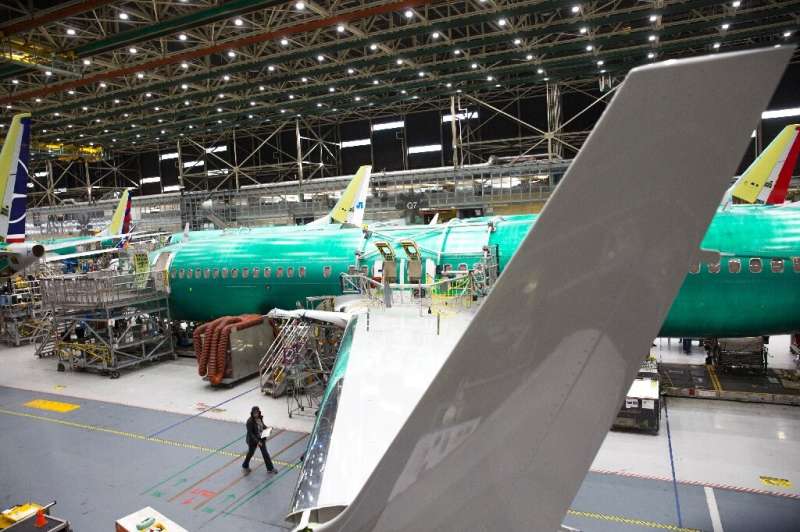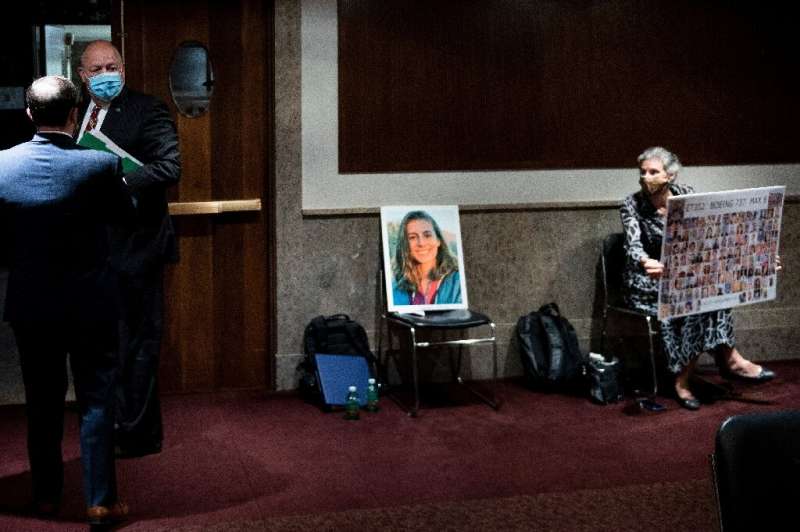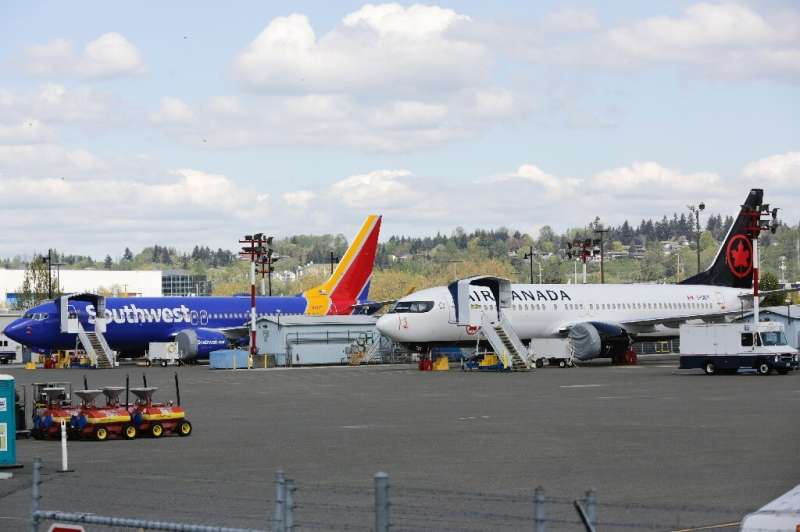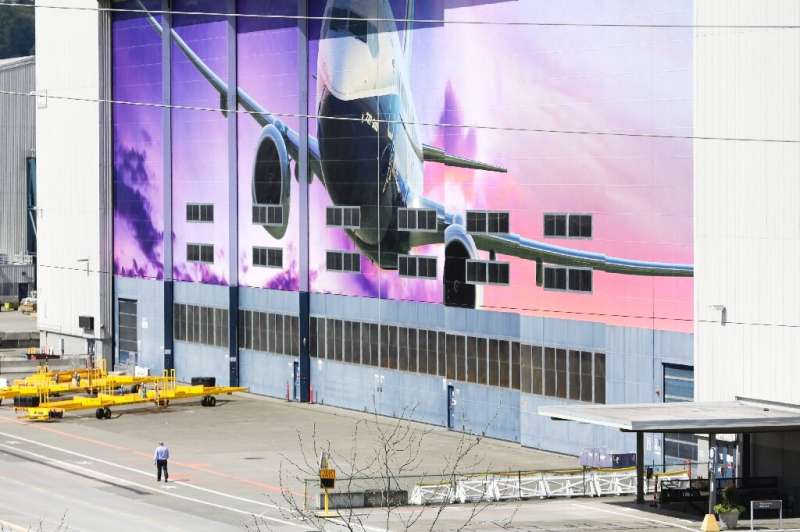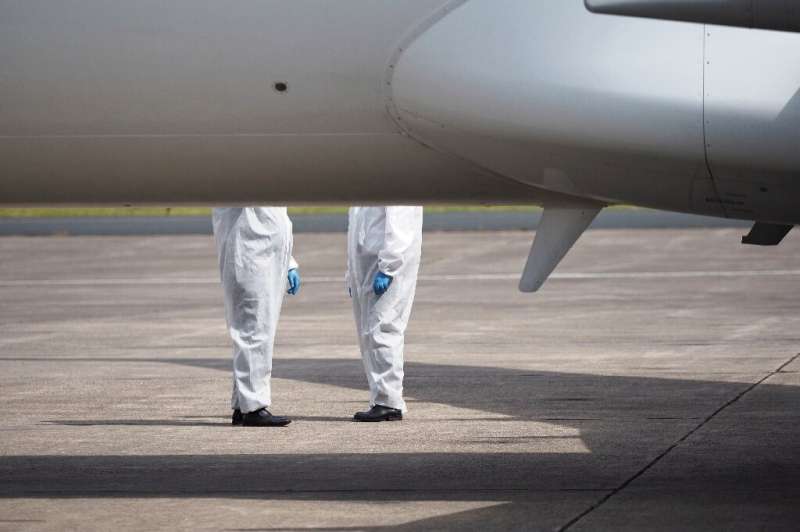The Boeing 737 MAX has been grounded globally since March 2019 following two major crashes that together killed 346 people
Boeing's 737 MAX plane could begin key recertification flight tests as soon as Monday, a crucial step for the survival of a top-selling plane that has been grounded for more than a year following two fatal crashes.
Tests of the MAX "could begin as early as tomorrow, evaluating Boeing's proposed changes to the automated flight control system on the 737 MAX," the Federal Aviation Administration said in a message to lawmakers on Capitol Hill Sunday.
"Testing is expected to take several days, and will include a wide array of flight maneuvers and emergency procedures to enable the agency to assess whether the changes meet FAA certification standards."
A Boeing spokesman said Monday the company would defer to the FAA on the mechanics of the test, including timing. The FAA did not respond Monday to queries.
The MAX has been grounded globally since March 13, 2019, following an Ethiopian Airlines crash that killed 157 people. That catastrophe came just a few months after a Lion Air MAX crash that killed 189 people.
The troubling similarities between the two accidents, both of which occurred shortly after takeoff, along with the pilots' inability to regain control of the plane, led global aviation authorities to ground the model indefinitely.
Nadia Milleron, mother of a victim of the Ethiopian Airlines crash, watches as FAA administrator Stephen Dickson leaves a hearing of the Senate Commerce, Science, and Transportation Committee on June 17, 2020, in Washington, DC
For months, the US aviation giant has been struggling to get its medium-haul aircraft—whose sales were its main source of revenue before the grounding—back into service.
The model's anti-stall flight system, the MCAS, was partially to blame for both crashes. But other technical malfunctions, including one involving electrical wiring, were subsequently detected during the aircraft's modification process, slowing down its recertification.
For weeks, Boeing has been awaiting the green light from authorities to conduct test flights to prove the modifications provide maximum safety.
Sunny skies
Civil aviation authorities cannot approve the modified model until they have examined how it performs in flight. They will also look at the thousands of data points collected during the flights.
And even after the test flights, there are still "a number of steps" before the plane is cleared to fly, the FAA said in the message to Congress.
US regulators are getting close to undertaking a test flight of Boeing's grounded 737 MAX
These include the development of pilot training protocols on the MAX that must receive public comments that are reviewed and a final review by a technical advisory board.
New MAX aircraft that have been built since the crashes will also need to be personally inspected by FAA staff, the FAA said.
"The FAA has not made a decision on return to service," the agency said.
Flights are expected to take off from Boeing Field, just outside Seattle, the manufacturer's birthplace in the northwestern US state of Washington.
The weather is difficult to predict, but forecasts show a five percent chance of rain Monday and sunny skies in the afternoon.
According to the New York Times, an FAA pilot will be at the controls to test out the modifications conducted on the plane, and a Boeing test pilot will also be on board.
In general, test flights are meticulously prepared for.
-
Boeing anticipated the MAX would return to service in mid-2020, but the coronavirus pandemic, which resulted in travel restrictions and lockdown measures to try and slow its spread, has upset the schedule
-
The 737 MAX for more than two-thirds of Boeing's order book and is therefore crucial to the mid-term survival of the manufacturer—which, like the entire aviation industry, is suffering from the effects of the coronavirus crisis
Delay after delay
A few months ago, Boeing anticipated the MAX would return to service in mid-2020, around June.
But the coronavirus pandemic, which resulted in travel restrictions and lockdown measures to try to slow its spread, has upset the schedule.
Boeing needs to get the 737 MAX back in the air in order to pull itself out of a historic crisis.
The aircraft accounts for more than two-thirds of the company's order book and is therefore crucial to the mid-term survival of the manufacturer—which, like the entire aviation industry, is suffering from the effects of the coronavirus crisis.
At the end of April, Boeing released details on a downsizing plan to cut total headcount by 10 percent, or roughly 16,000 employees in all.
In March, credit ratings agency S&P downgraded its rating for Boeing to BBB from A-, moving it into a speculative category.
Additional modifications expected to be required by foreign aviation authorities could also add substantial costs to the MAX program.
© 2020 AFP
